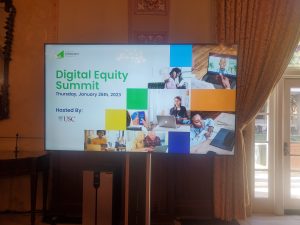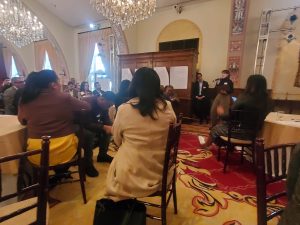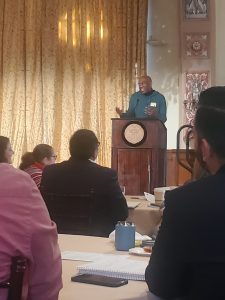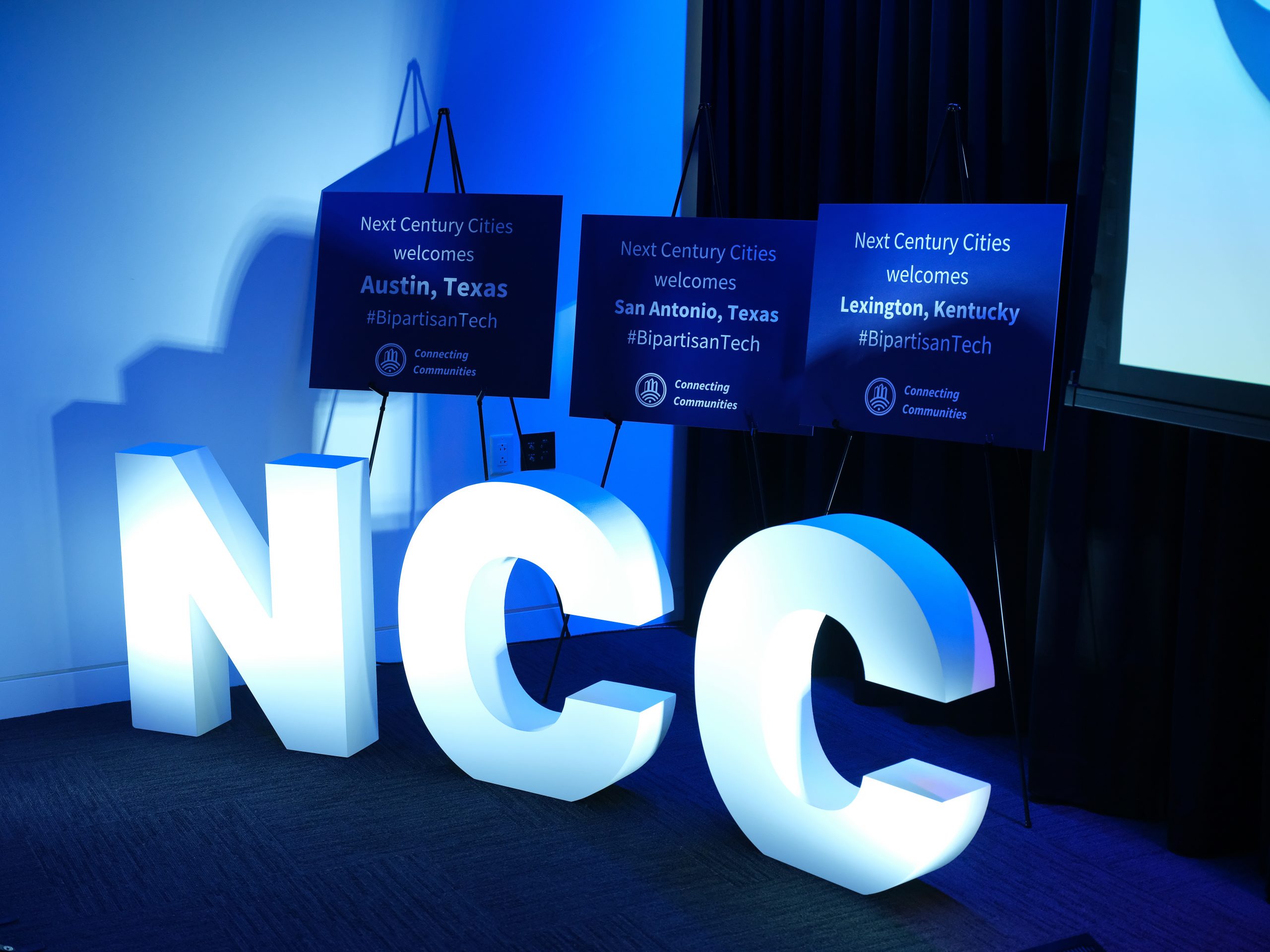By Roxy Barboza and Corian Zacher

With billions of dollars on the table from the State of California and the federal government, there has never been a more important time to invite new partnerships and foster existing alliances. The California Community Foundation’s Digital Equity LA initiative convened a workshop for local leaders, community partners, and academics on January 26, 2023 at the University of Southern California (“USC”). Attendees shared the common goal of ensuring equitable, affordable broadband for all Angelinos.
The event kicked off with a keynote address from Sanford S. Williams, Special Advisor to Federal Communications Commission (‘FCC”) Chairwoman Jessica Rosenworcel. Williams emphasized the importance of local participation in the FCC’s upcoming digital discrimination proceeding stating,“Your zip code should not determine your destiny.”
Martha Escutia, former California State Senator and now Vice President of Government Relations at USC, highlighted the urgency of closing the digital divide statewide. The abundance of resources at the federal and state level are desperately needed in cities like Los Angeles, the second most populous city in the United States after New York City.
The event also included members from the California Alliance for Digital Equity (CADE). Organizational allies, particularly Common Sense Media, NextGen Policy and The Utility Reform Network (TURN), have led cross-sectoral alliances across Los Angeles. During a panel discussion, their organizational leaders celebrated several victories from the last year:
- Pushing the California Public Utilities Commission (CPUC) to focus on discriminatory impact in the state’s digital redlining proceeding;
- Supporting a bill that empowers the CPUC to collect more accurate and granular data; and
- Defeating a bill that would have created an artificial deadline for broadband grant application reviews.
CPUC staff joined to explain the state’s new mapping process, which includes a list of priority areas. Broadband grant applications for projects in priority areas will receive additional weight compared to others. Unfortunately, as conference attendees pointed out, Los Angeles and other high-need communities are not included on CPUC’s priority list. NCC’s Program Director, Roxy Barboza, goes into further detail in “How Inaccurate Broadband Maps Impact California.”
Attendees also joined breakout discussion tables, zooming in on targeted action items and strategies to operationalize remarks made throughout the day. Barboza and NCC’s Senior Policy Counsel Corian Zacher led a discussion on community priorities and opportunities with DeAnne Cuellar, Community Broadband Outreach Team Lead for the Institute for Local Self Reliance. At the heart of the discussion, panelists and attendees agreed that a community-centered outreach and implementation approach is critical for long-term digital equity partnerships.



 .
. 
Additional Resources:

